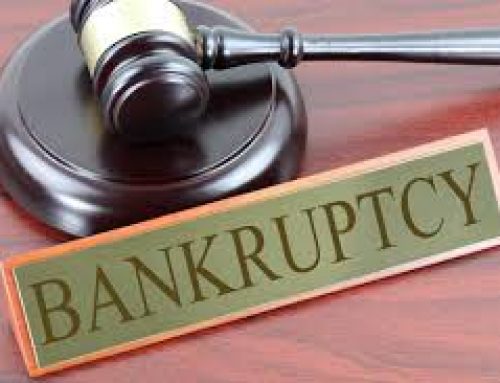As many creditors will know, obtaining judgment against a debtor is often only the first step in what can easily become a protracted procedure for recovering payment of a debt.
There are many methods of enforcement of a judgment debt available to a creditor. However, the Covid-19 pandemic has, in certain cases, had an impact on the effectiveness of some of those methods.
Often considered to be the most effective method of enforcement, many creditors elect to instruct a High Court Enforcement Agent to recover payment of a debt where the judgment is obtained:
-
- In the High Court; or
- In the County Court, and is for £600 or more (provided that the judgment does not relate to a debt payable in respect of a Consumer Credit Act 1974 regulated liability); or
- Through an Employment Tribunal.
The process by which a High Court Enforcement Agent is instructed where the judgment is not obtained in the High Court is a relatively simple one, largely due to the fact that many Agents offer an online “Transfer Up” service, whereby they will deal with the formality of transferring the County Court judgment or Employment Tribunal award to the High Court for enforcement on the creditor’s behalf.
Once the proceedings have been “transferred up”, the High Court will issue a Writ of Control. This is essentially the High Court Enforcement Agent’s instruction to recover payment of the debt.
Armed with the Writ of Control, the Agent will attend at the debtor’s premises with a view to recovering payment of the debt (including all statutory enforcement costs), possibly by means of seizing goods to the value of the outstanding amount.
It is often the case that a judgment debtor will not have the financial means to pay the amount due in one lump sum. The High Court Enforcement Agent therefore has a very valuable weapon in his armoury – the CGA.
A CGA is an agreement between a High Court Enforcement Agent and a judgment debtor pursuant to which the debtor is permitted to retain custody of their goods, whilst at the same time acknowledging that the Agent is taking control of them to enforce a judgment debt. In doing so, the debtor agrees not to remove or dispose of those goods before the debt is paid.
Whilst the CGA is in place, a debtor can (provided that the judgment creditor agrees) be afforded the opportunity to pay the debt by instalments, thereby avoiding the need for seizure and sale of their goods.
Once the total debt (including enforcement costs) has been paid the CGA will no longer have any effect.
One important issue which has come to light as a result of the Covid-19 pandemic is the restrictions on the High Court Enforcement Agent’s ability to enter a debtor’s premises for the purpose of identifying the debtor’s goods which are capable of being seized. This issue has been addressed by a High Court Master in
Just Digital Marketplace Ltd (enforcement – controlled goods agreements – taking control of goods) [2021] EWHC 15 (QB).
In that case the Master decided that the Tribunals, Courts and Enforcement Act 2007 (
“TCEA 2007”) allowed a CGA to be entered into in circumstances where the High Court Enforcement Agent had not physically gone into the debtor’s home or business premises where the goods were located.
The Master noted, amongst other things, that paragraph 9 of Schedule 12 of the TCEA 2007 provides that the Agent can only take control of goods located on premises which he has the “power to enter” under the TCEA 2007. There was no requirement that the goods had to be on the premises which the Agent had actually entered.
In summary, a High Court Enforcement Agent is able to enter into a valid CGA with a debtor, even where he has not gained physical entry into the debtor’s premises.
Whilst this is a welcome development for judgment creditors and Enforcement agents alike during these present, uncertain, times, one practical point does come to light; if the CGA is entered into virtually, how does the Enforcement Agent know what goods of the debtor are to be included in it? Normally, following entry into the debtor’s premises, the Enforcement Agent would prepare an inventory of the debtor’s goods which are capable of being seized, and then itemise those goods in the CGA.
One answer, it seems, is for the High Court Enforcement Agent to conduct a virtual inspection of the debtor’s premises, perhaps by way of a video recording. However, this requires the debtor’s consent and it is not beyond the realms of possibility that a debtor may withhold that consent as a means of frustrating the Enforcement Agent’s attempts to recover payment of the debt due and owing, especially where the address at which the CGA is intended to be enforced is a residential property (to which Enforcement Agents have no legal right to force entry).
Griffin Law is a dispute resolution firm comprising innovative, proactive, tenacious and commercially-minded lawyers. We pride ourselves on our close client relationships, which are uniquely enhanced by our transparent fee guarantee and a commitment to share the risks of litigation. If you have any specific questions regarding a dispute, please email justice@griffin.law or call 01732 52 59 23.
GRIFFIN LAW – TRANSPARENT FEES. TENACIOUS LAWYERS. TRUSTED PARTNERS.
Nothing in this document constitutes any form of legal advice upon which any person can place any form of reliance of any kind whatsoever. We expressly disclaim, and you hereby irrevocably agree to waive, all or any liability of any kind whatsoever, whether in contract, tort or otherwise, to you or any other person who may read or otherwise come to learn of anything covered or referred to in this document. In the event that you wish to take any action in connection with the subject matter of this document, you should obtain legal advice before doing so.
© Griffin Law Limited, 2020. All rights reserved.



![Carlill v Carbolic Smoke Ball Company [1892] EWCA Civ 1](https://www.griffin.law/wp-content/uploads/2022/03/Picture1-500x383.jpg)

